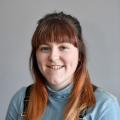
Coronavirus cases for a seven-day average in Cumbria are continuing to decrease as the spread of Covid-19 is slowing across the county.
An interactive map, which uses data from Public Health England, shows how many people have tested positive for the virus in each area during a seven-day period.
The data is broken down by postcodes.
Public Health England breaks down the numbers of coronavirus cases into neighbourhoods called 'Middle Super Output Areas' (MSOAs), which are smaller than council wards and based on population rather than geographical area.
The interactive map, which can be found here, allows users to type in their postcode and see how many cases were reported in their area and if it has increased or decreased from the week before.
The darker the colour on the image, the more positive test results have been recorded.
The map highlights which areas of the county have three or more confirmed cases of the virus and colour co-coordinates the areas by how many cases they have.
The latest data shows figures up to May 4 and the total number of cases for Cumbria was 25, this was a decrease of 22 or -46.8 per cent from the previous week.
Cumbria recorded a rolling rate of 5.
Seven–day rates are expressed per 100,000 population and are calculated by dividing the seven day count by the area population and multiplying by 100,000.
The following areas within each district in Cumbria recorded the highest number of cases for the past seven days:
Allerdale:
There were fewer than three cases in all areas.
Barrow:
Abbotsmead & Salthouse recorded the highest number of cases with three cases. This was an increase of one cases or 50 per cent.
The are has a rolling rate of 40.
Carlisle:
There were fewer than three cases in all areas.
Copeland:
There were fewer than three cases in all areas.
Eden:
There were fewer than three cases in all areas.
South Lakes:
There were fewer than three cases in all areas.



Comments: Our rules
We want our comments to be a lively and valuable part of our community - a place where readers can debate and engage with the most important local issues. The ability to comment on our stories is a privilege, not a right, however, and that privilege may be withdrawn if it is abused or misused.
Please report any comments that break our rules.
Read the rules hereLast Updated:
Report this comment Cancel